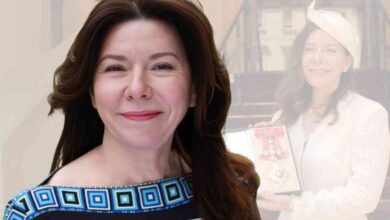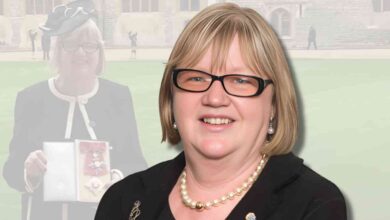Tom Henshaw: Championing Sustainability, Community Resilience, and Food-System Innovation

In a world confronting environmental breakdown, public health crises, and social inequities, tom henshaw, Visiting Assistant Professor in Sustainability & Environmental Studies and Global Health at Denison University, emerges as a remarkable example of applied scholarship. His journey across agroecology, rural sociology, community-driven agriculture, and global health makes him a pivotal figure in shaping the next generation of sustainability leaders.
Educational Foundation: Eclectic, Interdisciplinary, Impactful
Tom henshaw’s academic path reflects an integrative mindset. After completing his B.A. at DePauw University, he earned an M.S. in Interdisciplinary Ecology—with an agroecology focus—from the University of Florida, followed by a Ph.D. in Rural Sociology from The Ohio State University. This blend of ecological understanding and social inquiry forms the backbone of his teaching, fieldwork, and research.
Practical Experience: From Paraguay to Campus Homesteads
For over two decades, henshaw has immersed himself in hands-on agricultural and community development:
- As a Peace Corps volunteer in Paraguay, he embedded himself in rural life and grassroots food systems.
- He spent years growing organic vegetables and establishing community gardens.
- His role as a U.S. Customs Agriculture Inspector deepened his insight into the global ecosystem of food and biosecurity .
- Since 2011, he has served as Homestead Coordinator at Denison, overseeing the sustainability‑focused living-learning community—the Homestead—which blends solar, composting, gardening, and cooperative living.
This real-world experience informs every aspect of his educational approach and research.
Teaching Philosophy: Learning by Doing
henshaw directs a spectrum of courses that walk students through the human‑environment nexus:
- ENVS 100/101/102: Foundations of integrated environmental studies
- ENVS 200: Methods in Environmental Analysis
- ENVS 236: Political Ecology—examining power and environment
- ENVS 290: Community Resilience
- ENVS 301: Junior Practicum—hands‑on student projects
- ENVS 334: Sustainable Agriculture
- GH 100: Introduction to Global Health
- W 101: The Meaning of Food
He prioritizes experiential learning and community engagement, guiding students through site visits, group work, and the Homestead seminar.
Research Focus: Social Infrastructure & Food‑System Resilience
henshaw’s scholarship explores critical issues at the intersection of social structure and ecology:
- He researches how social networks and community organizations support economic development and resilience in food systems.
- His 2019 article in Culture, Agriculture, Food, and Environment, titled “Is the Emergence of the ‘Fresh Prep’ Food Service Provider an Entrée into Local Foods,” delves into how institutional food choices amplify local sourcing.
- In 2007, he co‑authored a two-part soybean study on early‑season flooding, addressing crop resilience under climate stress.
Conference Engagements
His presentations at prominent conferences include:
- 2017 Rural Sociological Society: Local food purchasing motivations in liberal arts colleges
- 2015 AFHVS & ASFS: Agricultural social infrastructure and community development
- 2014 Sustainable Agriculture Education Association: Lessons from Denison “Homestead” community.
Homestead Leadership: Living Sustainability
The Homestead, founded in 1977, operates as a living lab where students learn sustainable technologies, food production, cooperative governance, and ecological ethics. As coordinator, henshaw has shaped how this unique environment bridges academic instruction and ecological practice.
Under his guidance, the Homestead continues to innovate—utilizing passive solar, composting toilets and student-led projects that test the limits of sustainable living. This work not only prepares students for real-world sustainability challenges but also strengthens Denison’s reputation within environmental education.
Community Outreach & Crisis Response
henshaw’s civic engagement extends beyond the campus:
- During COVID‑19, he and his family participated in Denison’s Homestay initiative, hosting international students and integrating sustainability with community care.
- His advisory role with local conservation boards like the Licking Land Trust underscores his commitment to regional agroecology and resilience.
These endeavors exemplify his belief in sustainability rooted in community and mutual support rather than theoretical concepts alone.
Student Mentorship & Curriculum Development
henshaw invests deeply in mentoring students:
- He supervises capstone projects and junior practicum work that often interface with local organizations.
- Under his supervision, students have conducted independent research on institutional dining practices.
- Feedback on RateMyProfessors often highlights his subject mastery and classroom engagement, though some note organizational inconsistencies—a natural challenge in courses spanning both theory and fieldwork .
By blending rigorous research with applied mentorship, he encourages students to become sustainability practitioners, not just informed observers.
Recognition & Institutional Impact
henshaw’s influence is evident through:
- Peer‑reviewed and field-specific publications and talks that contribute to academic and practical sustainability conversations.
- The sustained growth of Denison’s Homestead, which under his leadership has expanded its educational scope and technological integration .
- Strengthened Denison’s position as a sustainability leader locally—through student outreach, conservation partnerships, and civic action.
Looking Forward: Sustainability in Action
As sustainability becomes ever more urgent, henshaw’s work signals key trends:
- Institutional resilience: connecting food systems, local agriculture, and global health through social networks.
- Model education: using living-learning communities to foster interdisciplinary competencies in ecological stewardship.
- Community synergy: blending campus innovation with civic leadership around agroecology and global citizenship.
Conclusion: A Holistic Vision of Change
Tom henshaw embodies the fusion of ecological theory, social science, and community practice. From Paraguay’s fields to Denison’s Homestead, and from classrooms to local boardrooms, his path demonstrates how dedicated educators can promote sustainable change—person by person, garden by garden, policy by policy.
If you’d like a deeper dive into his methodology, syllabi, or recent student projects, I’m glad to help with further detail.



